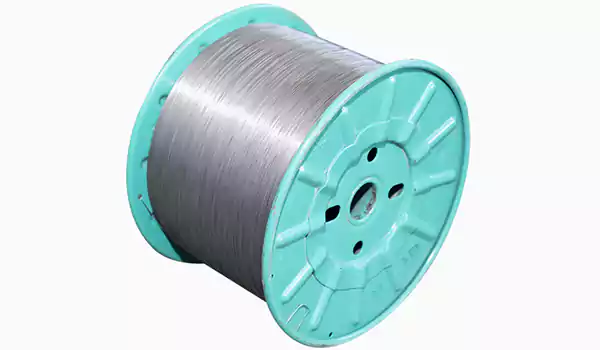
Choosing the ideal metal pipe for your project depends on grasping its technical details and possible uses. Common specifications include material type, wall thickness, length, and tolerances. Attributes such as pressure limits, heat performance, and corrosion resistance play a major role in pipe selection for industrial, commercial and residential projects. Steel pipes play a part in construction, industrial operations, infrastructure development, water systems, gas networks, drainage solutions, support structures and targeted applications
- Recognizing the unique requirements of the work helps identify the best pipe
- Review authoritative industry guidelines to understand exact specifications for metal pipes
- Opt for materials that match pressure requirements, heat exposure and corrosion conditions
Hollow Steel Sections: Strength, Durability, and Flexible Use
Formed steel tube products present excellent strength and are favored in a variety of industrial, structural and commercial settings. Proven endurance arises from specialized forming and treatment processes. Formed by pulling and shaping steel billets or rods into tubes, they present notable corrosion and wear resilience and enduring performance in severe environments. Formable tube steel supports conversion into varied cross-sections and complex forms to deliver project-specific solutions. Used across heavy infrastructure, architectural frameworks and complex mechanical assemblies, tube steel's resilient strength, extended durability and versatility make it a cornerstone of modern industryExpanded Steel Mesh for Increased Security and Safety
Expanded metal mesh is widely adopted in contexts demanding reliable security and greater safety protections. The open geometry offers visual transparency while enforcing a physical blockade to unauthorized access and potential dangers. Selectable opening geometries and metal thicknesses provide adaptability to exact specifications
- Tough expanded metal resists collisions, intentional harm and severe environmental exposure
- Moreover, straightforward fitting and reduced maintenance needs promote broad implementation
- For shielding essential facilities and personnel safety in manufacturing sites, expanded metal provides a complete protective approach
Steel Mesh Industrial Roles
Steel mesh sees broad industrial application due to high strength, long life and adaptable function. It establishes a durable structure applicable to filtration, screening, reinforcement and protection tasks. In civil construction, steel mesh is often embedded in concrete to strengthen tensile resistance and prevent cracking. Beyond that, it is applied in bridge decks, tunnel structures and civil engineering works for strengthening and bearing loads. Manufacturing relies on steel mesh screens and filters with dense or fine structures to segregate materials by size for sieving, sorting and purification. Protective uses include mesh-based guardrails, fences and enclosures designed to prevent intrusions and protect operators. Thanks to strong tensile properties it tolerates impact and force, making it appropriate for demanding protective duties
Structural Uses of Metal Pipes
By virtue of their strength, metal pipes function as vital elements in many structural implementations. Their adaptability helps create dependable frameworks that perform load-bearing functions across industries. Across tall buildings, bridges and subterranean pipelines, metal pipes deliver foundational support while enduring harsh environmental stresses. Corrosion defence plus convenient fabrication cement their position in modern building practices
Selecting Best-fit Tube Steel for Your Undertaking
When planning construction or fabrication, selecting the right tube steel is critical. Tube steel’s mix of robust strength, lasting durability and lower weight suits it to a wide range of uses. But multiple available grades and specs can render tube steel selection somewhat difficult
- For project success, consider the application purpose, load specs and environmental factors
- Aspects like wall thickness, diameter and material grade directly affect tube steel performance
For heavy structural projects, high-yield or heavy-gauge tube steel with thicker walls may be appropriate, while lightweight uses like bicycle frames could use thinner-walled, lighter steel
Engage expert engineers or proven suppliers to help pick the right tube steel for the specific project
Benefits and Advantages of Expanded Metal in Construction
Expanded metal delivers a variety of pragmatic and productivity-enhancing benefits for construction. Its lower weight facilitates placement and installation and helps decrease labor-related costs. In addition, the open formation supports better ventilation and drainage, reducing moisture buildup. Durable construction renders it ideal for situations demanding high resistanceKnowledge of Metal Pipe Joining
Pipe joint components are key elements in piping systems that secure continuous hot-rolled steel plate fluid and gas transmission. Which connection to use depends on pipe size, material, rated pressure and the specific application. Commonly used pipe joints are threaded, flanged and welded types, offering assorted strength and sealing capabilities. Threaded coupling involves screwing male and female threads, flanged coupling uses bolted plates to form a seal, and welding fuses pipes into permanent joints with heat and pressure. Understanding the attributes of different joints is essential to secure a functional and leak-free piping arrangementDIY-Friendly Metal Mesh Applications
The metal mesh is tough, durable and multipurpose, lending itself to many DIY projects. Its open, interconnected structure makes it perfect for creating fences, screens and decorative pieces. In addition, the material's lightness and manageability attract both amateur and experienced DIY practitioners
- Think of steel mesh for your next practical or decorative DIY task
Metal Pipes: Sanitary to Structural Purposes
Metal pipes serve as vital components in contemporary building and infrastructure for strength, durability and versatility. Where they began primarily as plumbing elements, metal pipes now serve structural reinforcement and support functions as well. From structural bases to complex water and gas distribution systems, metal pipes provide indispensable services in everyday and infrastructural systems. Robust construction allows them to manage high pressures and loads and corrosion resistance delivers dependable long-term performance. Likewise, high formability supports adapting pipes to many configurations for different application requirements
Expanded Metal: Creative Designs and Functional Uses
Expanded metal offers special design opportunities paired with effective functionality. Open structural design facilitates uses from architectural ornamentation to industrial safety and protection systems. Robust expanded metal withstands considerable loads and still provides attractive appearance
- Moreover, expanded metal's open structure boosts ventilation and supports applications requiring heat dissipation
- Applications of expanded metal are wide-ranging across construction, manufacturing, transportation and creative design fields